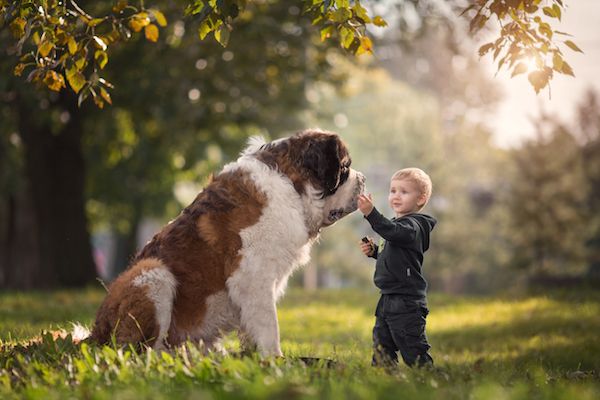As the holidays approach, many children will request puppies in their letters to Santa. While there are many reasons why children grow up with dogs, there are also potential cons and risks if proper training and supervision aren’t in place. It is important to think about the dog as the family’s responsibility.
Dogs can teach children many character skills including compassion, kindness, leadership and responsibility. However, as a parent, and sole provider, it is important to keep in mind that children, especially younger ones, may not have the capacity to understand boundaries and body language communicated by the dog. Dogs often bite children when their communication signals are repeatedly ignored and disrespected.
This is why it is important to look at the relationship between child, adult and dog as a “team.” As a family, work together to meet the needs of your dog. Give your children age appropriate tasks to perform each day related to the dog’s care. As the “coach,” set expectations for both the children and the dogs. Recognize children when they interact with the dog in a positive way, and reward dogs when they display appropriate behavior.
Include children in training sessions and classes with your dog. This will help your dog recognize your children as leaders, and will help children learn responsibility. Stick with positive training techniques so children aren’t taught to yell or hit the dog. Families can work in pairs (adult and child) to complete tasks such as feeding, walking and training. This will not only allow you to supervise child-dog interaction, but will also further solidify bonding.
Monitor your dog’s body language during child-dog interaction. If your dog seems uncomfortable or is trying to escape from your child, remove your child from the situation, and begin to teach boundaries. Likewise, don’t force a nervous child to interact with a dog before they are comfortable doing so. Dogs and children may both display behaviors under undue or repetitive stress which can negatively affect the relationship between the two.
The more everyone in the home works together, the more successful and rewarding the relationship between human and dog will be.
